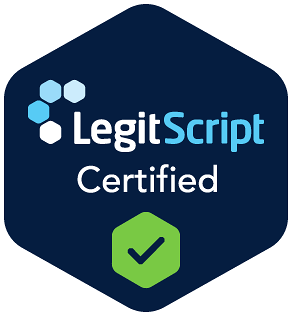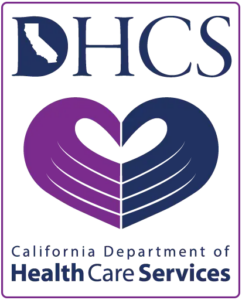Behavior therapy services can significantly benefit those grappling with substance abuse and related co-occurring disorders. This recovery-focused approach addresses the root causes of addiction and equips individuals with vital coping mechanisms to navigate challenging emotions, ultimately fostering enduring healing and sobriety.

Through CBT for substance abuse, people can acquire the necessary skills and resilience to attain enduring sobriety and effectively combat their addiction. Our cognitive-behavioral therapists will equip clients with new skills and perspectives that can be utilized in the long term to assist in managing their substance use disorders. Cognitive-behavioral therapy (CBT) offers individuals valuable strategies and coping mechanisms.
Surf City Detox, located in Huntington Beach, California, is committed to guiding you on your journey to recovery, recognizing that this path requires professional support and direction. As a trusted detox center, we provide medically supervised detox services that serve as the critical first step toward lasting sobriety. Our comprehensive addiction therapy services offer the best prospects for healing, ensuring you have the opportunity for a complete and enduring recovery.
When applied to substance abuse, CBT serves as a form of talk therapy that emphasizes the identification of the connections among thoughts, emotions, and behaviors. This approach aids individuals in comprehending how their negative beliefs and thought patterns directly influence their actions.
If you are currently facing challenges related to alcohol or drug dependency, it is important to be aware that Surf City Detox provides a range of treatment programs and therapies for substance abuse, including cognitive-behavioral therapy (CBT). Our addiction treatment is tailored to meet your specific needs while also addressing the underlying factors contributing to your substance use disorder (SUD).
Goals of CBT for Substance Abuse
CBT assists individuals in identifying detrimental thought processes and substituting them with more constructive cognitive approaches. This therapeutic method empowers those in recovery with the necessary skills to navigate stressors while remaining aware of the connections between maladaptive behaviors and negative emotions. Through cognitive behavioral therapy, individuals can gain valuable insights into their journey toward overcoming alcohol and drug addiction.
Most importantly, this type of therapy delves into the root causes of a person’s addiction. These underlying factors may include experiences of trauma, previous abuse, anxiety, stress, depression, or other mental health issues. CBT for substance abuse aims to confront these challenges, bringing them to light to support the healing and recovery journey.

Identifying Negative Thought Patterns
Subsequently, strategies such as journaling, reframing thoughts, and confronting cognitive distortions are utilized to foster a healthier mindset that promotes recovery from addiction rather than a return to drug or alcohol dependence.
By directly addressing these negative thought patterns, CBT for substance abuse lays the essential foundation for enduring recovery. Transforming these detrimental thoughts into positive emotions and cognitive processes can significantly impact the journey toward overcoming addiction.
Developing Coping Skills
The skills developed through CBT are vital for addressing the challenges that may arise during the recovery journey. They provide individuals who have faced addiction with the opportunity to closely examine their internal and external responses, thereby facilitating the selection of healthier alternatives when confronted with anxiety or distress.
In addition to being explored in therapist-led CBT sessions, these strategies can be integrated into daily life, including:
- Implementing relaxation techniques during moments of tension
- Employing problem-solving strategies in the event of conflicts
- Engaging in healthy activities such as exercise or creative pursuits to manage emotions
- Reducing cravings linked to substance use disorders
By actively applying these learned strategies for overcoming adversity, individuals gain enhanced control over their lives, fostering confidence in their ability to maintain long-term sobriety.
Addressing Underlying Issues
By systematically addressing these psychological challenges, CBT enhances the likelihood of long-term recovery and reduces the potential for relapse. With a holistic perspective on mental health at its foundation, individuals can better manage their symptoms while fostering an understanding of the origins of their substance dependence.
In other words, CBT presents numerous benefits in the treatment of co-occurring disorders, as it emphasizes identifying root causes rather than merely treating superficial symptoms. By delving into these deeper issues, individuals significantly increase their chances of achieving favorable outcomes in their lives post-rehabilitation.

Benefits of CBT for Substance Abuse
CBT is customized to cater to the unique requirements of each individual, thereby promoting effective and favorable results. This therapeutic approach is particularly potent in addressing a range of issues related to both addiction and associated mental health conditions. The advantages of employing a cognitive behavioral framework include:
- Reprogramming negative thought patterns
- Facilitating self-understanding
- Identifying the root causes of personal challenges
- Promoting rational thought processes
- Supporting long-term sobriety
- Enhancing interpersonal awareness
- Improving communication abilities
- Increasing motivation for change
- Tackling the fundamental causes of addiction
- Assisting individuals in developing healthy coping mechanisms
- Raising awareness of and correcting maladaptive behaviors
- Addressing addiction alongside anxiety disorders, bipolar disorder, depression, mood disorders, and other mental health issues
- Contributing to overall well-being by addressing existing or emerging behavioral patterns
- Providing training in relapse prevention skills, including stress management and trigger identification
Cognitive Behavioral Therapy Services We Provide
- Restructuring of thought patterns
- Scheduling of positive activities
- Exposure therapy for fears
- Setting and achieving goals
- Mindfulness meditation practices
- Training in skills and problem-solving techniques
A wide range of CBT techniques, as previously mentioned, are designed to assist individuals in overcoming their most pressing challenges. Among the therapeutic options we provide, CBT for substance abuse is included in all our treatment programs, which encompass:
- Drug and alcohol detox
- Residential treatment
- Aftercare program
- Dual diagnosis treatment
CBT for Mental Health Disorders
- Depressive disorders
- Anxiety disorders
- Post-traumatic stress disorder (PTSD)
- Sleep and eating disorders
- Obsessive-compulsive disorder (OCD)
- Bipolar disorder
Additionally, our tailored treatment plans are effective for individuals experiencing phobias, schizophrenia, and other conditions.
Furthermore, the specialists at Surf City Detox adopt a hands-on and structured methodology in their cognitive-behavioral therapy sessions. This approach allows us to provide a unique and empathetic perspective in assisting you to navigate and overcome your mental health challenges.
CBT is integrated into our comprehensive substance abuse treatment program, which also encompasses extended care, outpatient services, treatment for co-occurring disorders, medication-assisted therapies, and various other evidence-based interventions.
Receive CBT for Substance Abuse at Surf City Detox
If you or a loved one is experiencing difficulties with a substance use disorder, it is crucial to seek assistance without delay. Cognitive behavioral therapy, along with various substance abuse treatment programs and strategies, can provide a viable long-term solution. Our California drug addiction treatment center is ready to support you. Reach out to Surf City Detox today to discover more about our addiction and mental health services, and arrange a consultation with one of our qualified clinicians.
Surf City Detox Accepts Insurance
We accept many insurance plans to help cover the cost of addiction treatment. Contact your provider to get more information or call our office to reach an intake specialist.


















